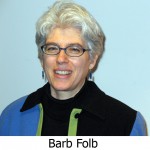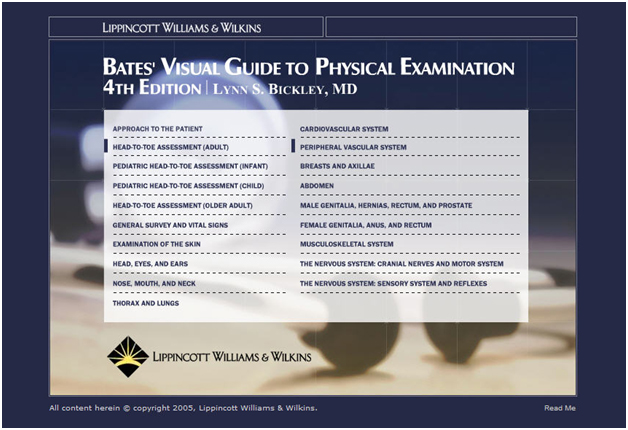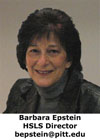HSLS offers classes on database searching, software applications such as Adobe Photoshop, bibliographic management, molecular biology and genetics, and library orientations. For more information, visit the online course descriptions.
Classes are held on the first floor of Falk Library (200 Scaife Hall) in classroom 1 and conference room B, and on the second floor in the Computer and Media Center classroom 2. Some classes are also held in the conference room at UPMC Shadyside Libraries. All classes are open to faculty, staff and students of the schools of the health sciences at the University of Pittsburgh and UPMC.
No registration is required for any of these classes. Seating for classes is first-come, first-served, until the class is full. Classes marked with an asterisk (*) qualify for American Medical Association Category 2 continuing education credit.
Class schedules are subject to change. Please consult the online class calendar for the most current information.
HSLS ORIENTATION
Introduction to HSLS Resources and Services at Falk Library
(Meet inside entrance to Library)
| Thursday, May 13 |
1-2 p.m. |
Also offered upon request to groups or individuals. Call 412-648-8796.
Introduction to HSLS Services at UPMC Shadyside
Offered upon request to groups or individuals. Call 412-623-2415.
Finding Full-Text Articles at UPMC Shadyside
Offered upon request to groups or individuals. Call 412-623-2415.
SEARCHING DATABASES
PubMed Basics* (Falk Library Classroom 1)
| Thursday, May 27 |
1-2:30 p.m. |
| Thursday, June 10 |
3-4:30 p.m. |
| Wednesday, June 23 |
10-11:30 a.m. |
Searching in CINAHL* (Falk Library Classroom 1)
| Thursday, May 13 |
10-11:30 a.m. |
Searching for Nursing Articles Using CINAHL* (UPMC Shadyside Libraries)
| Friday, May 14 |
3:30-4:30 p.m. |
MOLECULAR BIOLOGY AND GENETICS RESOURCES
DNA Analysis Tools* (Falk Library Conference Room B)
Pathway Analysis Tools 1* (Falk Library Conference Room B)
| Wednesday, May 19 |
1-3:30 p.m. |
Pathway Analysis Tools 2* (Falk Library Conference Room B)
| Wednesday, June 2 |
1-3:30 p.m. |
Introduction to Vector NTI* (Falk Library Conference Room B)
| Wednesday, June 23 |
1-3:30 p.m. |
SOFTWARE TRAINING
EndNote Basics (Falk Library Classroom 2)
(Note: This class is usually full. Please arrive 15 minutes in advance to ensure seating.)
| Thursday, May 13 |
10 a.m.-noon |
| Thursday, June 17 |
1-3 p.m. |
Adobe Photoshop for Beginners (Falk Library Classroom 2)
| Tuesday, May 11 |
10 a.m.-noon |
| Tuesday, June 8 |
10 a.m.-noon |
PowerPoint for Beginners
| Wednesday, June 16 |
10 a.m.-noon |
(Falk Library Classroom 2) |
| Wednesday, June 23 |
10 a.m.-noon |
(UPMC Shadyside Libraries) |
Advanced PowerPoint for Presentations (Falk Library Classroom 2)
| Wednesday, May 19 |
10 a.m.-noon |
The WOW Factor: PowerPoint for Posters (Falk Library Classroom 2)
| Tuesday, May 25 |
10 a.m.-noon |
LUNCH WITH A LIBRARIAN
These informal, brown-bag lunches are held in Falk Library conference room B. Bring your own lunch. Drinks and dessert are provided. For more information, visit the online descriptions.
Searching for Dollar$: Grant Resources
| Thursday, May 13 |
Noon-1 p.m. |
Twitter: a Powerful Current Awareness Tool
| Tuesday, June 22 |
Noon-1 p.m. |
Thursday @ Three HSLS UPMC Shadyside Libraries Information Series
These informal sessions are held in the conference room at UPMC Shadyside Libraries.
Why Use Clinical Focus?
Beyond PubMed-Next Generation Literature Searching
| Thursday, June 17 |
3-4 p.m. |
CUSTOMIZED CLASSES
Customized classes can be developed for your department, course, or other group.
LEARNING @ YOUR PACE
These online tutorials provide information on getting started at HSLS, focusing on the Web site and popular resources.

 In 1999, Barb Folb began her HSLS career as a reference/outreach librarian at Western Psychiatric Institute & Clinic (WPIC). Four years later, she was appointed public health librarian/liaison to the Graduate School of Public Health (GSPH). In that position, she provided reference services and library instruction to faculty, staff, and students.
In 1999, Barb Folb began her HSLS career as a reference/outreach librarian at Western Psychiatric Institute & Clinic (WPIC). Four years later, she was appointed public health librarian/liaison to the Graduate School of Public Health (GSPH). In that position, she provided reference services and library instruction to faculty, staff, and students.
 At the beginning of February, Pittsburgh was subjected to an exceedingly large snowfall. As a result, the University and its libraries were forced to close for three workdays as workers struggled to clear the streets and sidewalks.
At the beginning of February, Pittsburgh was subjected to an exceedingly large snowfall. As a result, the University and its libraries were forced to close for three workdays as workers struggled to clear the streets and sidewalks. You are probably familiar with how to search for relevant research articles using
You are probably familiar with how to search for relevant research articles using 